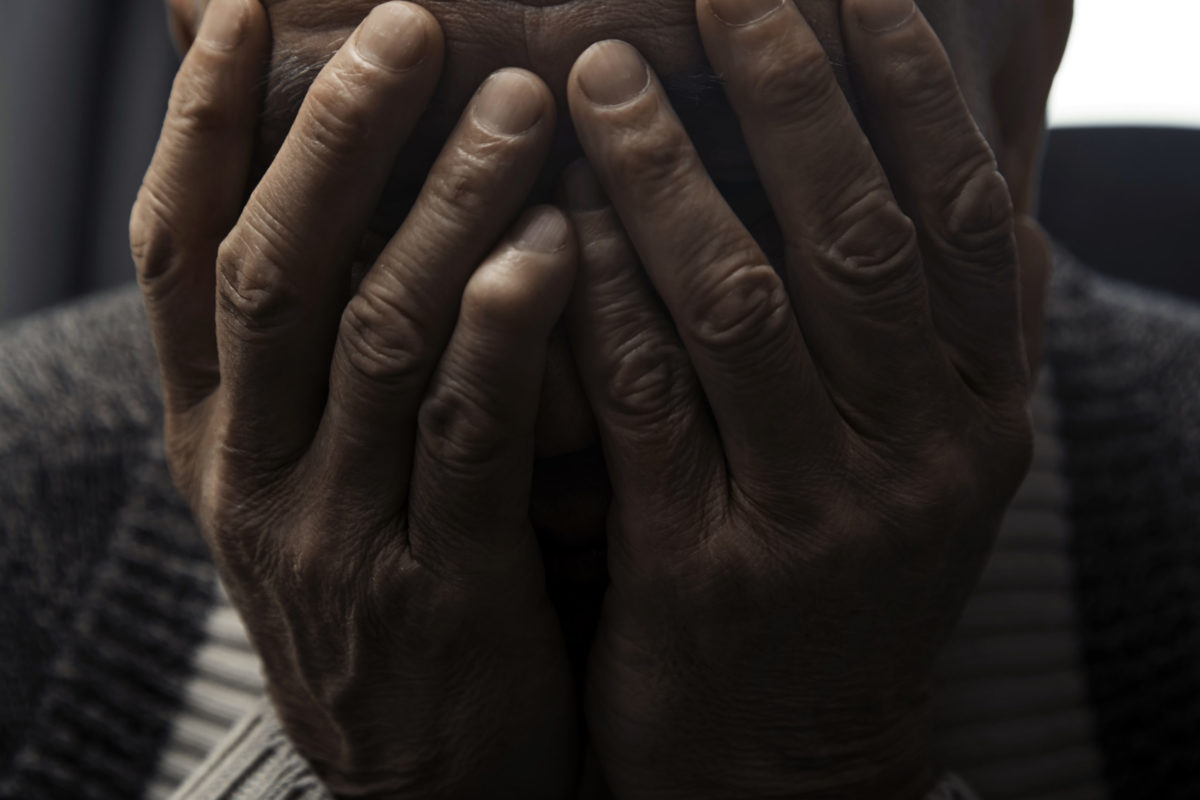Grief is an emotional response, but it takes a physical and mental toll, especially on older people.
“Think about someone who’s been married for 50 years losing their spouse,” says Dr. Jill Amos, licensed behavioral health psychologist for BlueCross BlueShield of Tennessee.
“In addition to the sadness and anxiety all of us experience with loss, that person’s entire environment is destabilized — the way they’re used to sleeping, their ability to feel safe in their own home or just having someone to bounce things off of. If they typically had meals prepared for them, that changes; If they were the person who did the cooking, they have to learn to make meals for one. All of their habits have to shift in ways they never imagined.”
Here are 3 things to know about grief and health.
1. Grief is healthy – for a while
Acute grief, or grief that lasts a relatively short amount of time, is part of a healthy grieving process. It can include any or all of the following:
- Disbelief, shock and denial
- Guilt, shame and regret
- Social withdrawal, loss of interest in pleasurable activities
- Sadness, anxiety, pain, helplessness, anger or loneliness
- Disruptions in sleep and appetite, low energy, irritability and depressed mood
“There’s no specific time limit for acute grief, but we want to see some progress by four months or so,” says Dr. Amos. “When you see an inability to begin to move on over time, that’s where we start to get worried.”
2. Prolonged grief requires outside help
Prolonged grief is a preoccupation with the loss of a loved one that affects a person’s quality of life. If someone feels “paralyzed” by grief for 6 months to a year, they’re suffering from prolonged grief.
Here are some examples of what it looks like:
- Disruption in sleep and daily habits
- Fear of strong emotions
- Belief that they will “never be the same”
- Feeling as though they are betraying their lost loved one by moving on
- Intense anger or worry that they might lose control
- Continued sense of disbelief
- Extreme guilt or feelings that the world is unjust
- Introversion or lack of care about other relationships
- Changes in personality, hygiene or weight
“One thing to note is that depression is not one of these symptoms,” says Dr. Amos. “Taking an antidepressant won’t necessarily be helpful unless the person already had clinical depression. Prolonged grief is a cognitive condition, so we recommend therapy. It can help a person tap into what was traumatic about the loss, what it means to them and how they can change their thinking-feeling-doing paradigm (a tool that identifies and links negative feelings, thoughts and behaviors so a person can figure out how to change them).”
Post-traumatic stress disorder (PTSD) is also a type of prolonged grief that’s triggered by a shocking or dangerous event. Learn more about PTSD here.
3. Resilience is key to processing grief
Resilience is the process of adapting well in the face of trauma, stress or challenges. If you’ve ever “bounced back” from illness, losing a job, the end of a relationship or financial problems, you’ve practiced resilience.
“Being independent and learning how to manage stress throughout your life makes you more resilient,” says Dr. Amos. “If you practice these behaviors, you’ll have an easier time working through loss because you’ve trained yourself on how to handle challenges.”
If you lack resilience, however, you may dwell on problems, feel victimized or turn to unhealthy coping mechanisms. The good news is you can build resilience at any age by creating positive relationships, finding meaning in everyday life and making healthy choices.
Get through the grief
Dr. Amos says there are a few steps anyone experiencing grief can take to improve their health.
“Talk to your doctor, consider talk therapy and try out support groups,” she says. “When you’re alone, sad or grieving, it’s important to find ways to remind yourself that you are not truly alone. Connection is really the first step.”
Learn more about how your emotions and health are connected:
- When to Seek Help for Mental Health
- Can Loneliness Affect Your Health?
- How Your Emotions Affect Your Health (And 6 Ways to Manage Them)
Get more information about specific health terms, topics and conditions to better manage your health on bcbst.com. BlueCross BlueShield of Tennessee members can access wellness-related discounts on fitness products, gym memberships, healthy eating and more through Blue365®. BCBST members can also find tools and resources to help improve health and well-being by logging into BlueAccess and going to the Managing Your Health tab.





